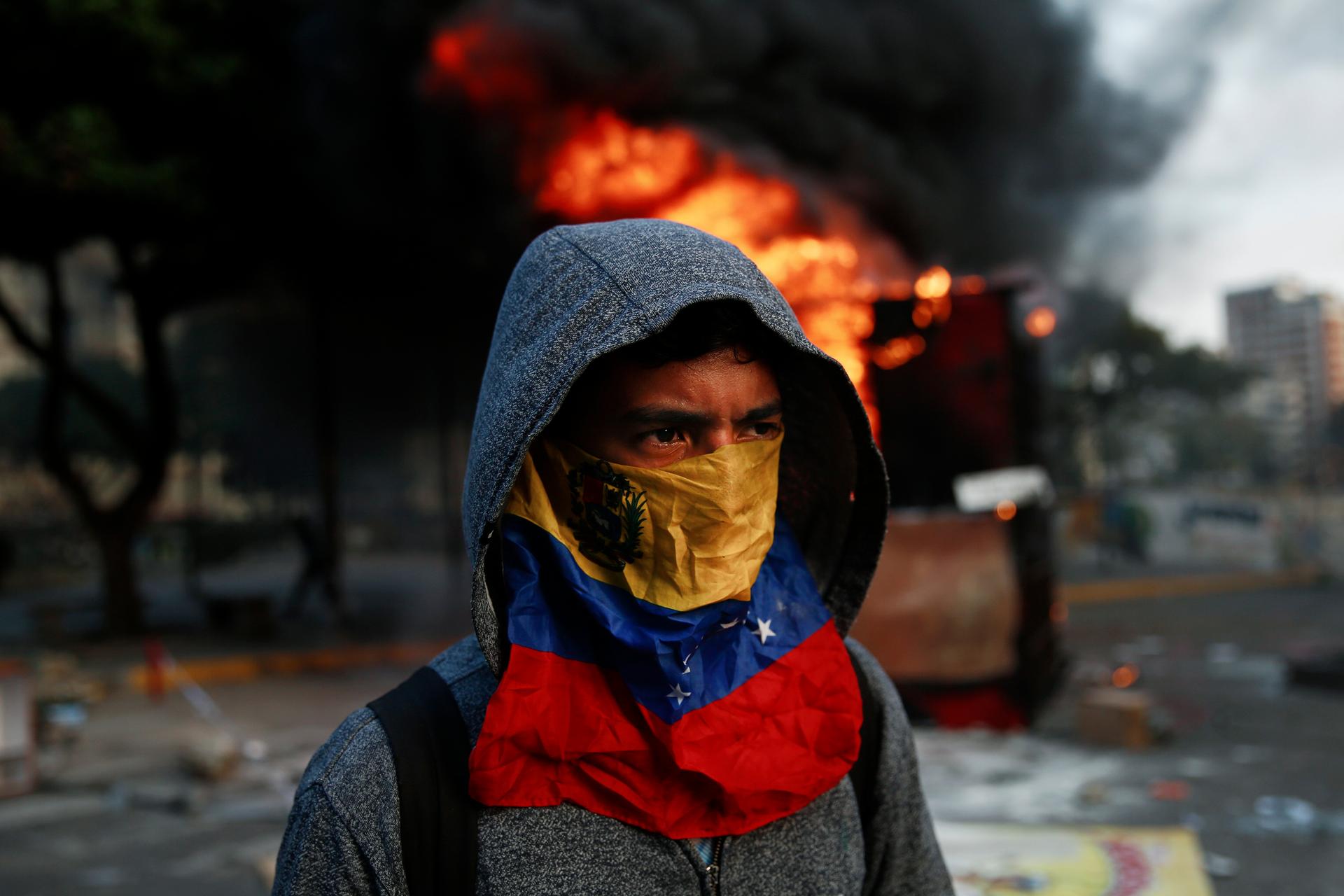Student activists emerge as leaders in Venezuela’s ongoing protests
An anti-government protester walks next to a burning kiosk during a demonstration at Altamira square in Caracas on March 9, 2014.
Chaos in the streets. Nearly two dozen dead. Tens of thousands locked in conflict.
That's the scene in Venezuela, where violence has rocked the nation for nearly a month. Anti-government protesters, mostly students and members of the middle class, first took to the streets back in February, rallying against soaring murder rates, a lack of basic goods and a faltering economy crippled by one of the world's highest rates of inflation. President Nicolás Maduro, who succeeded Chávez after the leader's death just more than a year ago, has consistently responded to the protests with brutal government crackdowns.
As the violence continues, both sides blame the other for the conflict's bloody escalation. Progress remains elusive. And although Maduro has said he is willing to engage with the protesters, inviting opposition leaders to meet with him in the capital city of Caracas, he continues to label them as "fascists" and "conspirators."
But even after the death of anti-government student leader Daniel Tinoco, who was shot in the chest during a demonstration in San Cristobal earlier this week, young people continue to flock to the Venezuelan streets.
Andrés García-Pretel, a student at the Central University of Venezuela, attended a demonstration on Wednesday. García-Pretel and his friends, like Central University student council president Juan Requesens, have emerged as leaders in the conflict.
García-Pretel says their requests are simple.
"We want the same things that everybody wants," he said. "We want our own house, we want to have our own car, we want to start a family, and you know, make something of ourselves. That's what we want. And the government and the economic crisis, and the bad handling of the economy, as well as crime and all the other problems that are going on in Venezuela, they're stealing our future," he says. "The people feel that. Whether you're from the upper class or the lower class or the middle class, it doesn't matter."
García-Pretel insists that all sectors and classes of Venezuelan society are united in their hopes, brought together by a collective sense of insecurity. But he emphasizes that the movement is focused on using non-violent means to bring about that change.
"In the few weeks that the protest has been going on, there's been more than 1,200 arrests, more than 300 or 400 injured, and 23 deaths directly related to the protests. But we tell them that in the face of violence, peace. In the face of insults from the government, peace," he adds.
Our coverage reaches millions each week, but only a small fraction of listeners contribute to sustain our program. We still need 224 more people to donate $100 or $10/monthly to unlock our $67,000 match. Will you help us get there today?
